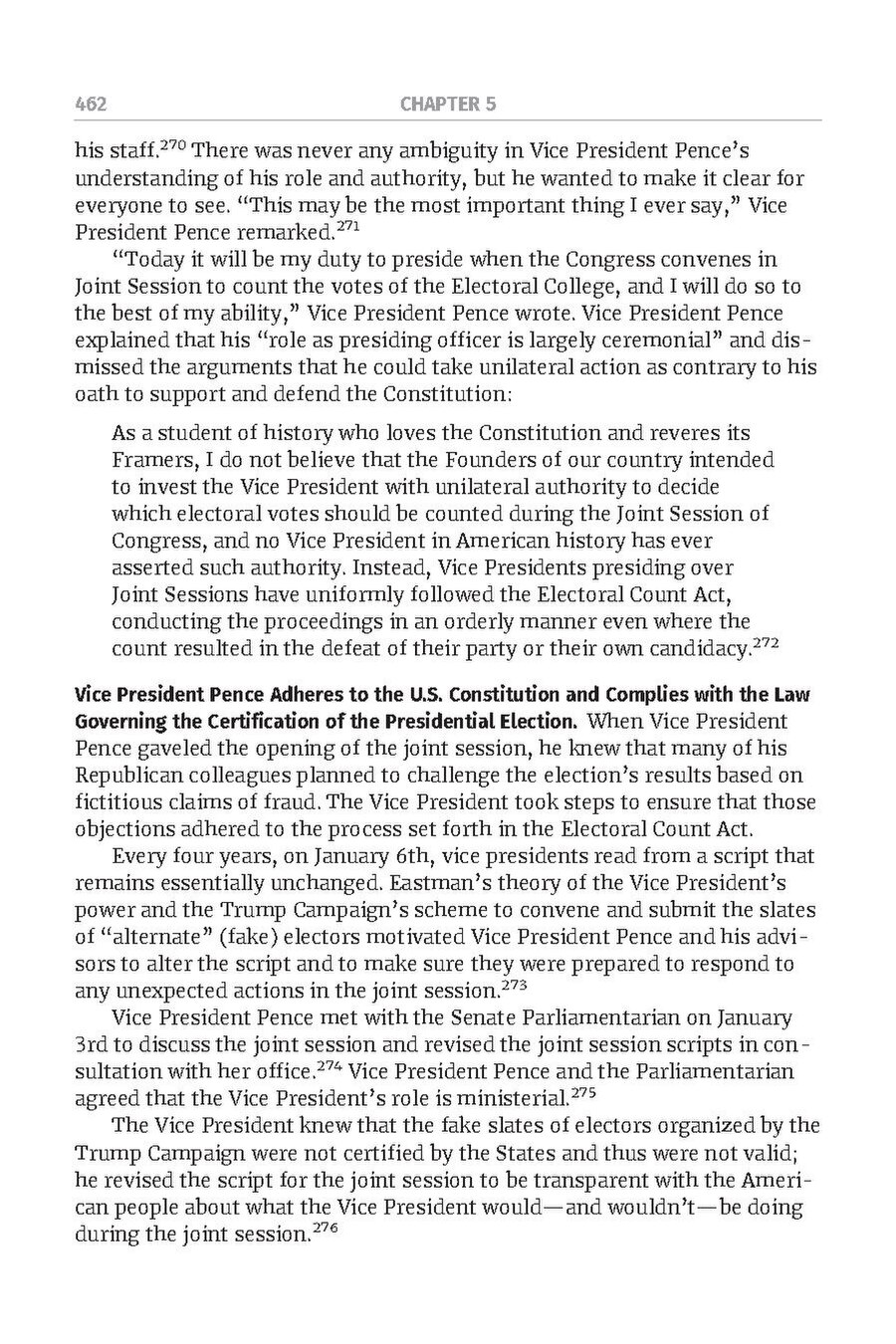his staff.[270] There was never any ambiguity in Vice President Pence's understanding of his role and authority, but he wanted to make it clear for everyone to see. "This may be the most important thing I ever say," Vice President Pence remarked.[271]
"Today it will be my duty to preside when the Congress convenes in Joint Session to count the votes of the Electoral College, and I will do so to the best of my ability," Vice President Pence wrote. Vice President Pence explained that his "role as presiding officer is largely ceremonial" and dismissed the arguments that he could take unilateral action as contrary to his oath to support and defend the Constitution:
As a student of history who loves the Constitution and reveres its Framers, I do not believe that the Founders of our country intended to invest the Vice President with unilateral authority to decide which electoral votes should be counted during the Joint Session of Congress, and no Vice President in American history has ever asserted such authority. Instead, Vice Presidents presiding over Joint Sessions have uniformly followed the Electoral Count Act, conducting the proceedings in an orderly manner even where the count resulted in the defeat of their party or their own candidacy.[272]
Vice President Pence Adheres to the U.S. Constitution and Complies with the Law Governing the Certification of the Presidential Election. When Vice President Pence gaveled the opening of the joint session, he knew that many of his Republican colleagues planned to challenge the election's results based on fictitious claims of fraud. The Vice President took steps to ensure that those objections adhered to the process set forth in the Electoral Count Act.
Every four years, on January 6th, vice presidents read from a script that remains essentially unchanged. Eastman's theory of the Vice President's power and the Trump Campaign's scheme to convene and submit the slates of "alternate" (fake) electors motivated Vice President Pence and his advisors to alter the script and to make sure they were prepared to respond to any unexpected actions in the joint session.[273]
Vice President Pence met with the Senate Parliamentarian on January 3rd to discuss the joint session and revised the joint session scripts in consultation with her office.[274] Vice President Pence and the Parliamentarian agreed that the Vice President's role is ministerial.[275]
The Vice President knew that the fake slates of electors organized by the Trump Campaign were not certified by the States and thus were not valid; he revised the script for the joint session to be transparent with the American people about what the Vice President would—and wouldn't—be doing during the joint session.[276]
